For two years, Ange Postecoglou rode the Tottenham rollercoaster. A staggeringly good start, to some horrendous lows and finally a tactical masterclass in a dam-busting trophy win that delivered ‘the biggest middle finger in English football history’. How did we get here? It’s a hell of a story.
One of Australia’s greatest sporting moments unfolded 17,250 kilometres away from the breeding ground of the chief protagonist.
Bilbao, in northern Spain, was the scene as Aussie Ange Postecoglou silenced the antagonists and conquered Europe by outwitting footballing giants Manchester United.
Postecoglou flipped the proverbial Bilbao bird to the naysayers, masterminding the “biggest middle finger in English football history”.
The former Socceroos boss demonstrated tactical versatility to engineer a 1-0 win, via winger Brennan Johnson, one of his first signings.
It is entirely apt that in ‘Australian Made’ week, Aussie Ange – bred in the Melbourne inner-city suburb of Prahran, whilst cutting his teeth at South Melbourne as a player and coach before kicking on – delivered this global triumph.
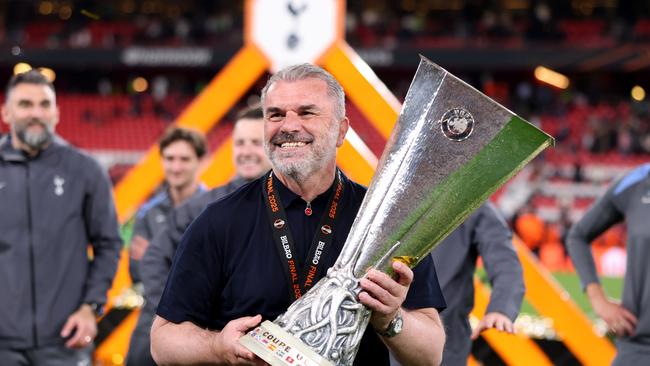
Ange promo pic 1
ANGE V GOLIATH
This was not Australia versus America, or a Trans-Tasman rivalry.
It was Ange versus Europe, the world and a British media brigade, who had Postecoglou in the crosshairs.
Cricket and Union are one thing, but an Aussie teaching our British pals a thing or two about the game they invented? Sounds far-fetched, doesn’t it?
Postecoglou made history, becoming the first non-European or South American coach to win the Europa League.
He joins an esteemed list including Diego Simeone, Rafa Benitez, Gerard Houllier and Jose Mourinho (United).
Yet it’s hard to think of a European trophy-winning manager who’s suffered the same scorn as Postecoglou.
Mocked for the best part of 15 months and treated as a meme-like figure, the Aussie has achieved what world-class managers Mourinho, Antonio Conte and Mauricio Pochettino could not.
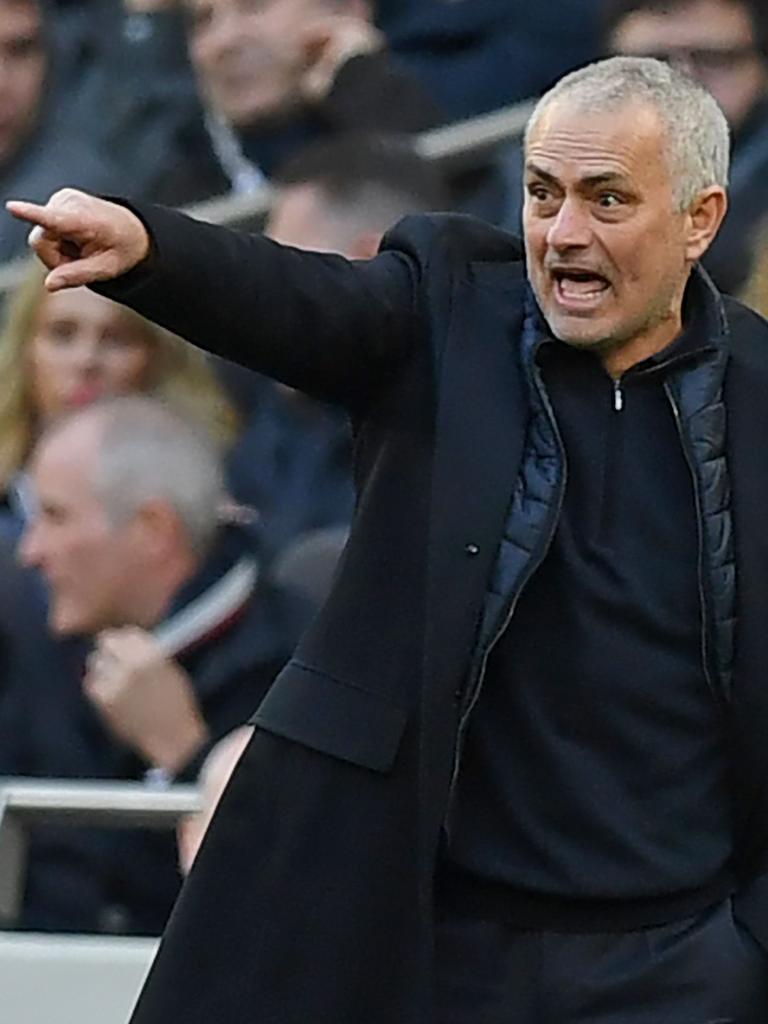
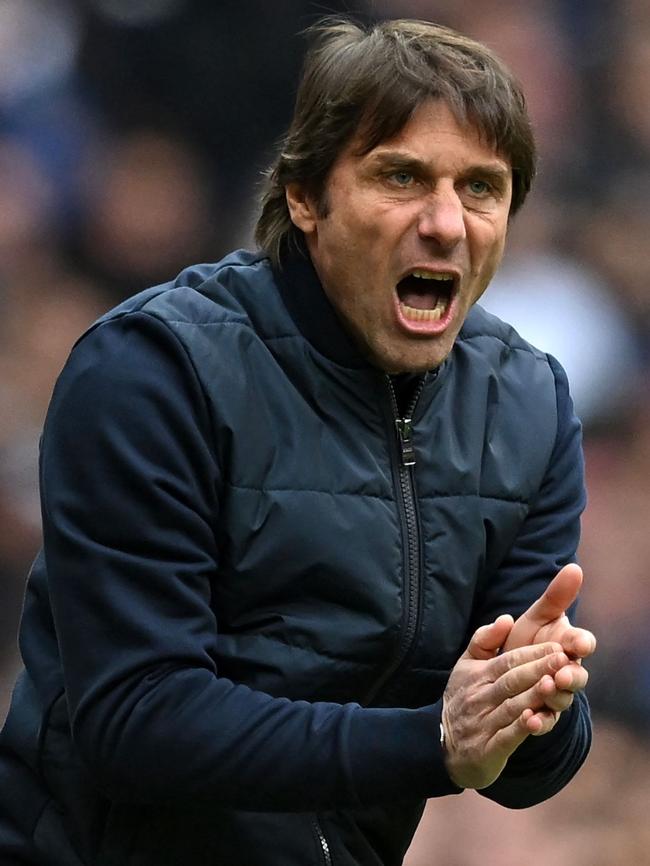
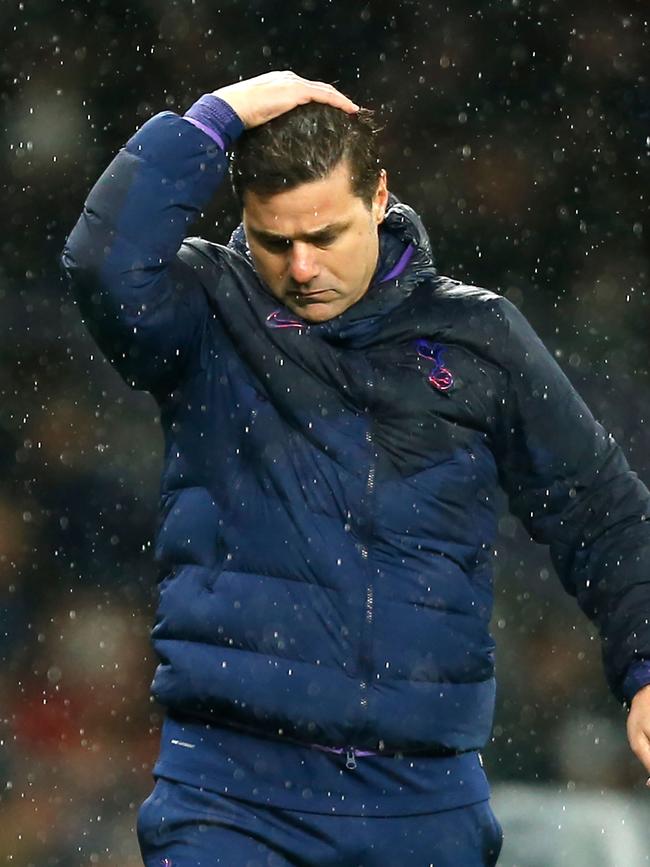
He broke one of England’s great trophy droughts — 17 years since Spurs’ last trophy (2008 League Cup) and 41 years since their last European trophy (1983/84 Europa League).
He navigated a doubting, complex-ridden supporter base, and a trigger-happy board of a club that has the potential to be a Premier League giant, but still boasts an inferiority complex to big clubs, including arch North London rival Arsenal.
Beating big-gamers and four-time European champions Man United is a huge step.
This is why our greatest coaching export produced one of our greatest sporting moments.
Derided by sections of the press pack, and doubted by large sections of his own supporter base, resilient Postecoglou refused to buckle.
Postecoglou instilled values taught to him by his Greek parents, who moved to Melbourne in 1970.
“He’s still with me,” Postecoglou said of late father Jim, who remains his biggest influence, having watched European and English FA Cup finals with his son on their Prahran couch back in the ‘70s.
Hundreds of Australians were in the stands to watch the momentous occasion unfold — from friends, including his childhood mates Ralph Battista, Chris Nikou, Nick Deligianni, and family of Postecoglou, assistant coach Mile Jedinak and chief football officer Scott Munn, to long-time Spurs fans who paid in excess of $10,000 to be in Bilbao.
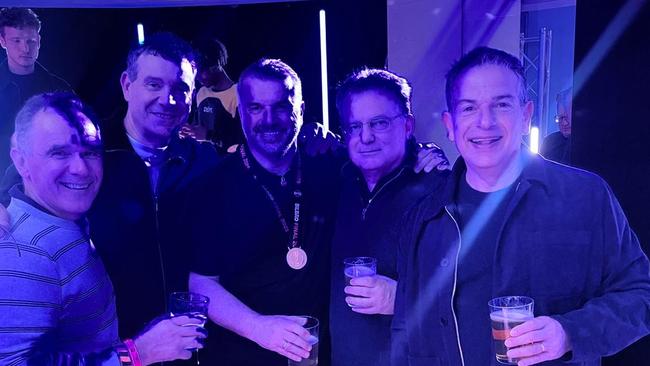
Promo image 2
This was the modern-day America’s Cup moment, but with a far larger global audience — a predicted global TV audience of 60 million, in addition to 55,000 in the stands.
And from the perspective of smashing stereotypes, he may just be the greatest sports export.
Emphasising this truly ‘Australian Made’ achievement, he dug his heels in and persisted with a locally-themed coaching staff.
Jedinak stepped up this season to play a more prominent role, with former Central Coast Mariners A-League title-winning player and coach Nick Montgomery and his assistant Sergio Raimundo joining the setup this season.
And it took an Australian to believe in him in Europe — his London-based Australian agent Frank Trimboli, who took a punt on the then Socceroos coach and plotted a path to the Premier League via Japan.
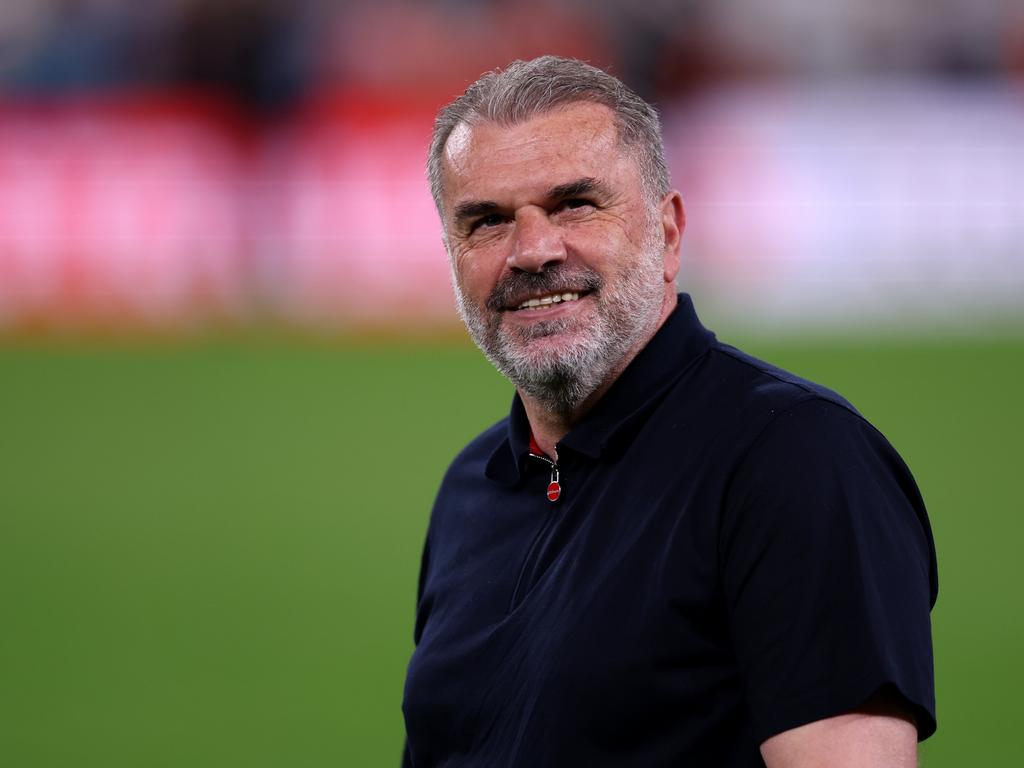
POSTECOGLOU’S PASSPORT
The ex-Socceroos boss has become the first non-European or South American coach to win the Europa League crown.
Of the 20 Premier League managers who’ve finished the season, 19 are Europeans (five Spanish, three Portuguese, three English). Postecoglou is the only Aussie.
The 16 permanent/interim managers who left at the end of last season/start of this campaign were also all European.
Outside of the Euro stronghold, it’s only been the South Americans who’ve broken through.
Whilst playing stereotypes were busted decades ago, this anomaly is why many British football fans and reporters airbrush the bulk of Postecoglou’s coaching history, which actually started 31 years ago at Western Suburbs and (semi) professionally at South Melbourne two years later.
For many in the UK, a trophy-laden career that includes South Melbourne, Brisbane Roar, Socceroos, Yokohama F. Marinos and Celtic success has no relevance to life as Spurs boss — especially the Australian stints.
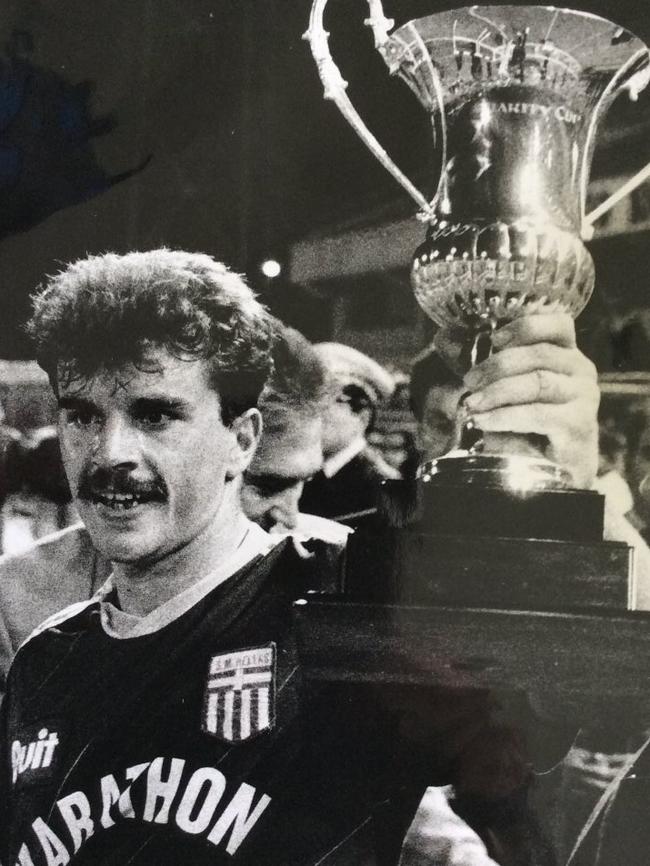
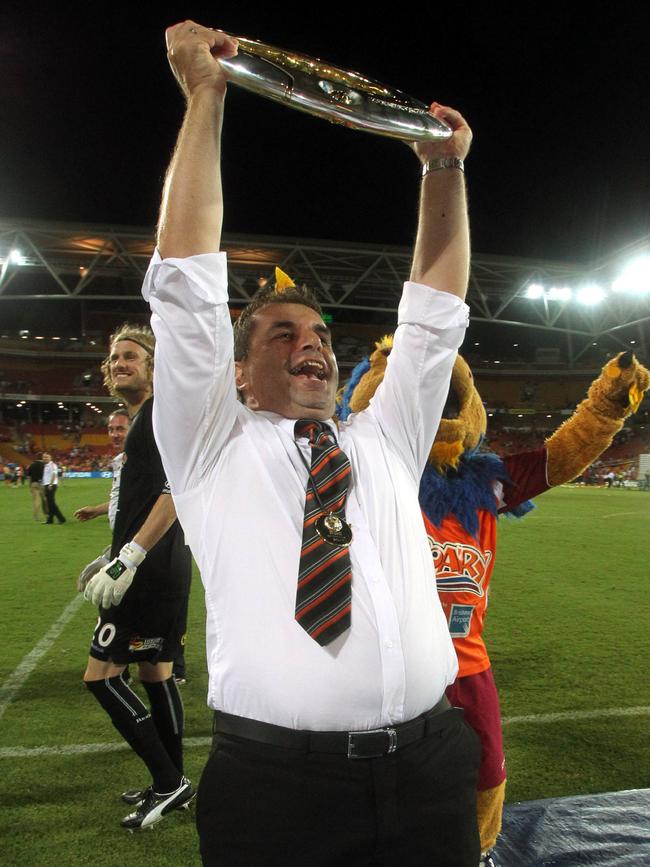
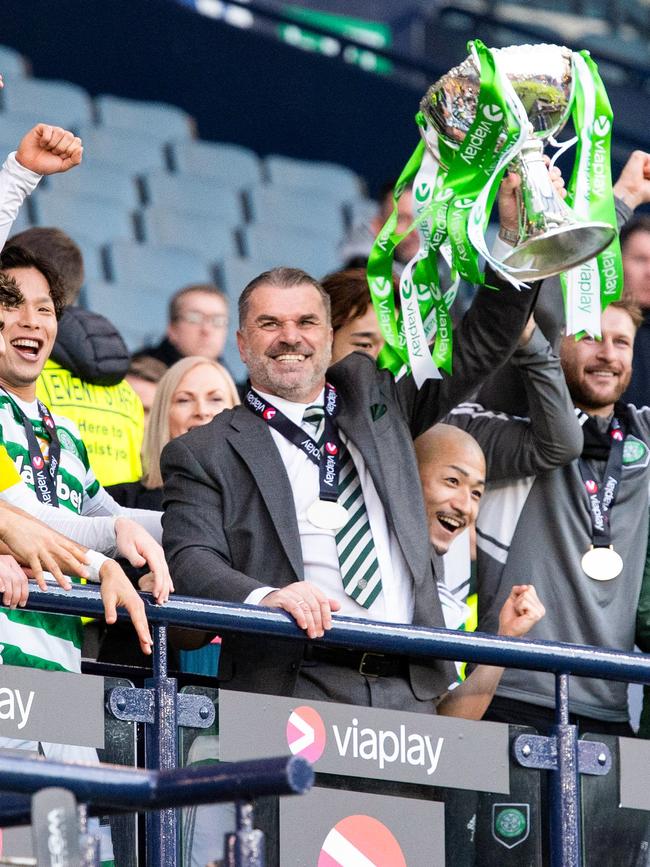
Critics may scoff at our underrated NSL, A-League and Socceroos, but make no mistake, the five Cup/Grand Finals he featured in on home soil provided muscle memory for this big moment in Bilbao.
It’s fuelled narratives such as Postecoglou’s tenure “teetering between hero and clown” depending on the result.
Foreigners are easier targets, especially when a conga-line of managers – local and abroad – would kill for the Spurs job.
So Postecoglou’s success is not only momentous for Australia, but for Asia and continents such as Africa, Central America and Oceania.
“I also feel very proud representing a part of the world that is still under-appreciated and not respected – that is Asia. I still think that’s where football’s got the most growth,” Postecoglou said.
BIG ANGE LOVE-IN
In contrast to 2016/17, when the then Socceroos coach could’ve walked London’s streets anonymously, after signing for Celtic he became box office for Sky Sports, who regularly played his press conferences into England.
That popularity exploded after he was appointed Spurs boss in 2023 and turbo-charged after leading the Premier League table and winning a record-equalling three manager of the month awards.
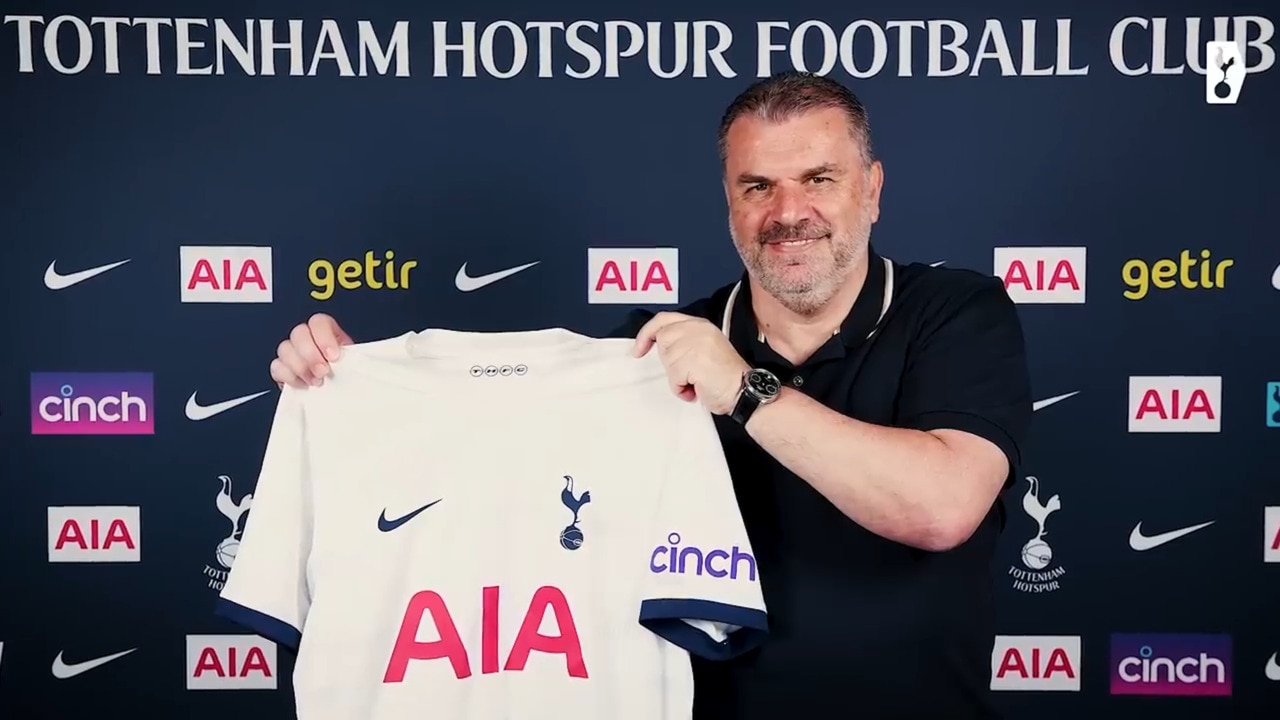
The fans penned the famous ode “I’m Loving Big Ange Instead,” and Tottenham Hotspur Stadium turned into a theatre of joy as the Aussie brought high-octane attacking football back to the club, coupled with late goals and drama.
The Spurs hierarchy were buoyed after several years of high-profile appointments that proved disastrous – headlined by Mourinho and Conte, who took a massive swipe on his way out.
Whilst the Spurs team was overachieving, the thin squad got caught out as injuries set in midway through the first season.
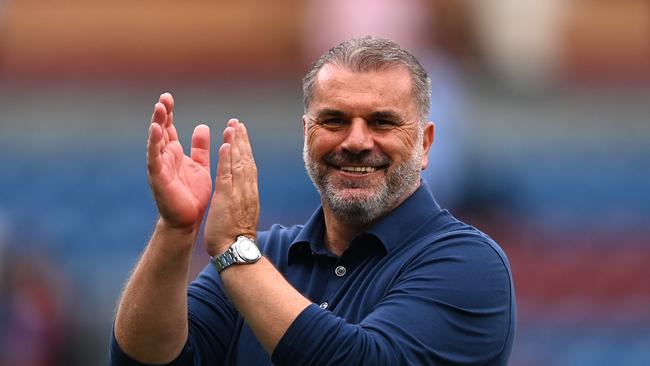
Ange promo pic 4
THE TURNING POINT
This season has been a far cry from the honeymoon period.
Postecoglou hung onto fifth position and a coveted European spot in his first season.
But the end of the season set off alarm bells for 2024/25.
If one was critical of Postecoglou – whose ability to handle executives and supporter bases alike is almost unmatched – he may have underestimated the vitriol between Spurs and Arsenal.
But Postecoglou was so focused on breaking Spurs’ inferiority complex, he only had one thing in mind heading into the infamous match against Manchester City last May.
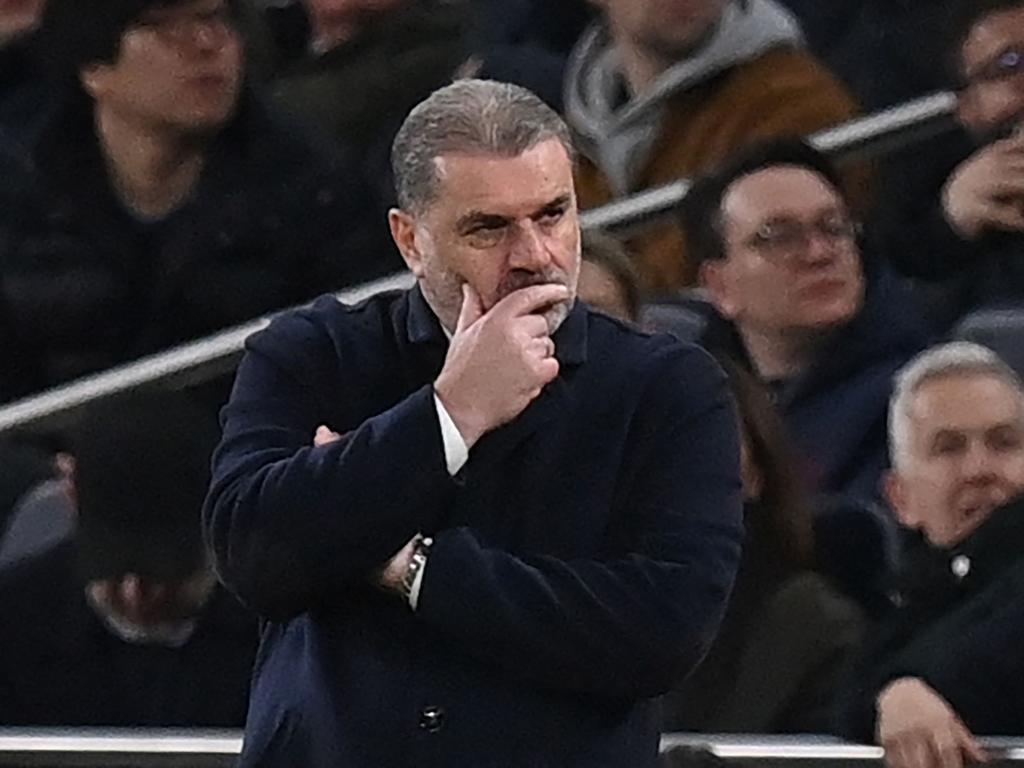

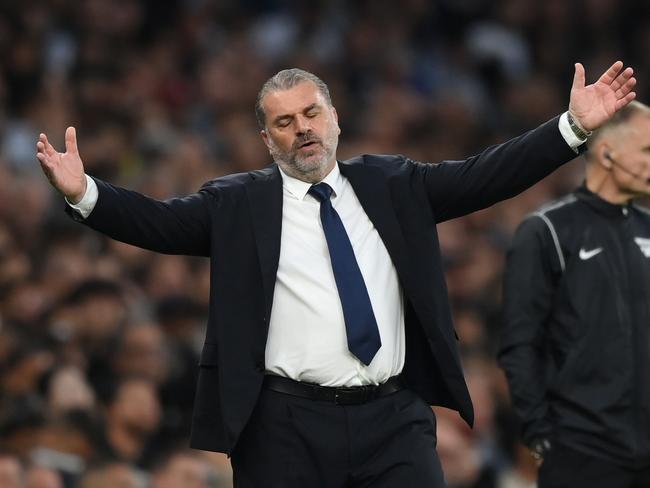
With a Spurs win set to gift arch enemy Arsenal the trophy, Postecoglou was quizzed about his intentions for the match, before fans were audibly torn during the game.
“That is probably the worst experience I’ve had as a football manager,” Postecoglou said after the 2-0 loss to Man City.
“There are fragile foundations… (and problems) inside, outside and everywhere.”
The off-season break came at an opportune time. But Spurs’ youth-focused summer spending was modest, which set the tone for a problematic 2024/25 campaign.
EUROPA LIFELINE
This season Tottenham never got going in the league, with a young squad struggling to cope as injuries set in early.
Spurs’ drought-breaking trophy quest gathered steam, going deep in both domestic cup competitions, although Liverpool bundled Postecoglou’s men out of the League Cup semi-finals.
Pressure mounted from all and sundry, with reporters conservatively bringing up Postecoglou’s ‘trophy’ call on no less than 50 occasions this season.
“I always win things in my second year,” Postecoglou told Sky Sports last September.

Whilst factually correct, a combination of ignorance, arrogance and old-fashioned journalistic persistence meant the line has been repeated ad nauseam.
Whilst the early backlash to his Celtic appointment gave him a taste of what was to come, the Premier League and London pressure-cooker is on another level.
Postecoglou has been one of the most talked about managers in the world. And averaging four all-in press conferences most weeks, in addition to dozens of extra TV interviews, the scrutiny is unprecedented.
It clearly took a toll on Postecoglou, who has done extraordinarily well to maintain his composure.
Especially when one considers that he has never deflected, never sent his assistants to talk on his behalf, and has at no stage thrown anyone else under the bus – board, executive, players, football department or fans.
However, he has felt hugely let down and isolated at different stages.
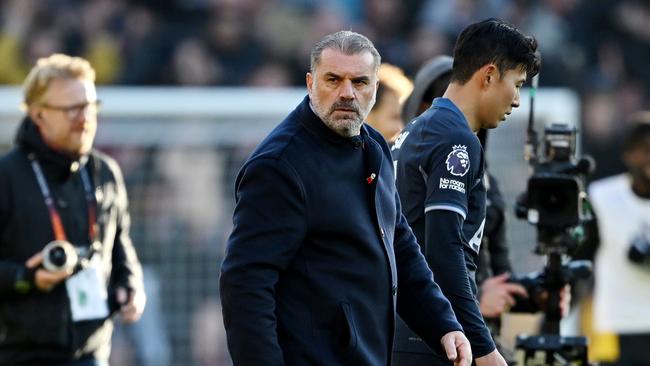
Ange promo pic 3
THE PRESSURE
January was a flashpoint of sorts. A 2-1 loss to Newcastle saw Postecoglou fume: “It’s the angriest I think I have ever been in my career.”
He was promised signings, yet during an injury-ravaged period, the two main signings came on deadline day – defender Kevin Danso, 26, and attacker Mathys Tel, 19.
Famously stubborn, pressure was mounting on Postecoglou, who tweaked his tactics at the business end of the season, particularly in the Europa League.
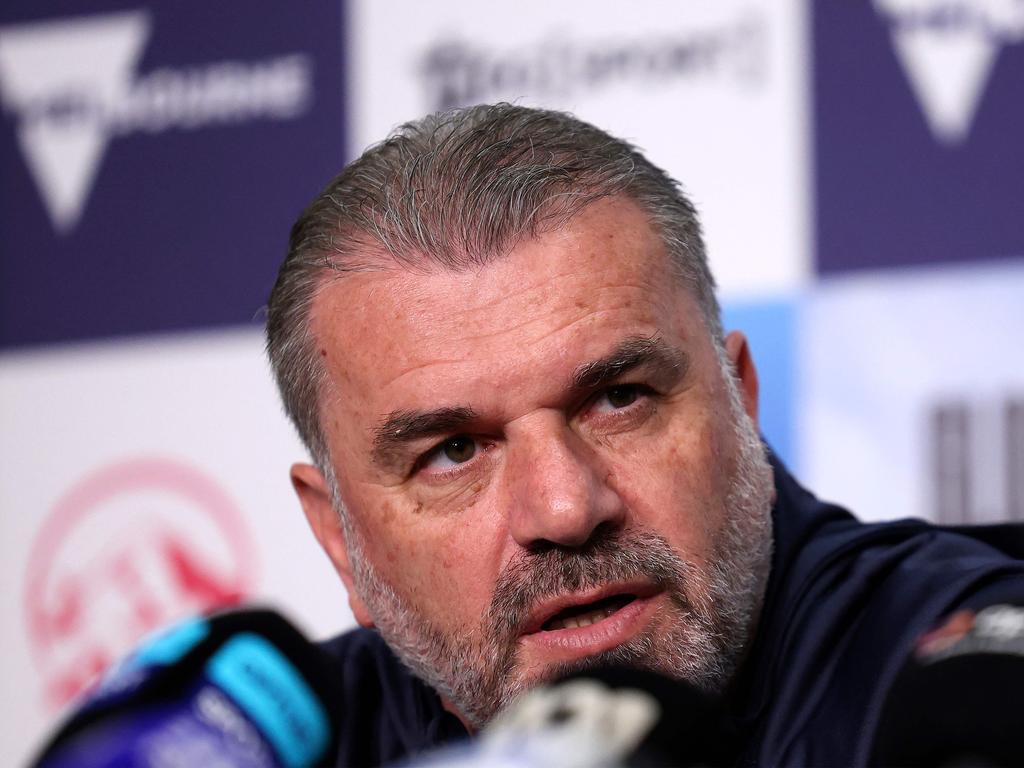
Evident from the start of the knockout phase (Round of 16) against AZ Alkmaar, there was a more pragmatic approach to Postecoglou’s Spurs, who were typically gung-ho in the first 18 months of his tenure.
Little was made of his tactical tweaking, despite a hitherto insistence that he was one-dimensional.
Missing key midfield/attacking players Dejan Kulusevski, James Maddison and Lucas Bergvall, Postecoglou outwitted a manager labelled as perhaps Europe’s brightest emerging star – Portuguese Ruben Amorim.
The post-mortem has focused more on ridicule of Man United’s performance, with less recognition of Postecoglou’s tactical savvy in surprising United with his selections and style.
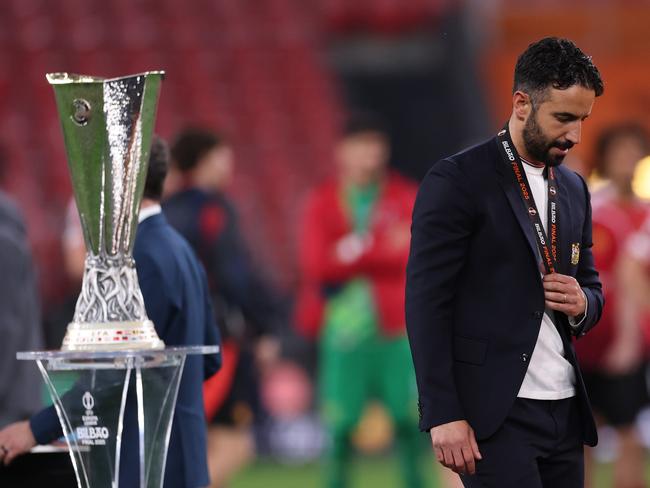
Undefeated in the previous six encounters and winning the last three against Man United, Postecoglou plotted a fourth straight win by sacrificing an attacking midfielder for the legs of an extra box-to-box midfielder, with Yves Bissouma and Pape Matar Sarr partnering Uruguayan Rodrigo Bentancur.
They effectively muzzled the Red Devils’ danger man Bruno Fernandes, who was arguably the player of the Europa League season and was forced deep all night in Bilbao.
In addition to Johnson’s 42nd-minute goal, the game’s other key moment involved another of Postecoglou’s first signings, Dutch defender Micky van de Ven, whose athletic goal-line clearance stopped a late United equaliser.
Postecoglou countered Amorim’s late moves, adding big-bodied Danso as an extra defender when they sent burly Harry Maguire forward. And they held out.
THE INNER CIRCLE
Amid the deluge of criticism, Postecoglou’s biggest safety blanket has come from his inner circle, all of whom were in the stands and pitchside after the Bilbao triumph.
His main support comes from his similarly resilient wife Georgia, along with his two young kids, Max and Alexi, who’ve helped him take his mind off football matters – occasionally.
Georgia has been a rock, and Postecoglou praises her at every opportunity, admitting her support and drive has been crucial.
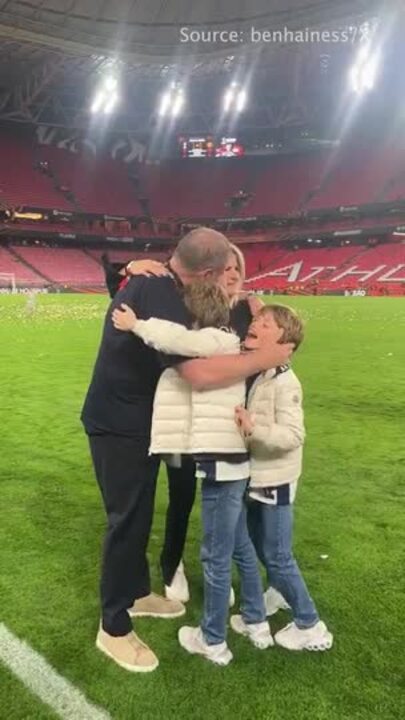
Trimboli has also become a close confidant, and his experience in navigating treacherous European football waters has undoubtedly helped him maintain a calm exterior.
Unlike Wolves’ pint-guzzling gaffer Vitor Pereira, who joins fans at the pub after wins, Postecoglou is not one to socialise with a wider circle.
He may enjoy a quiet dinner with his nearest and dearest, especially if his mates are visiting from Australia.
But for the most part, the workaholic boss is watching football, studying teams and scouting players.
When Spurs won their last trophy in 2008, Postecoglou was unemployable – even in his own country.
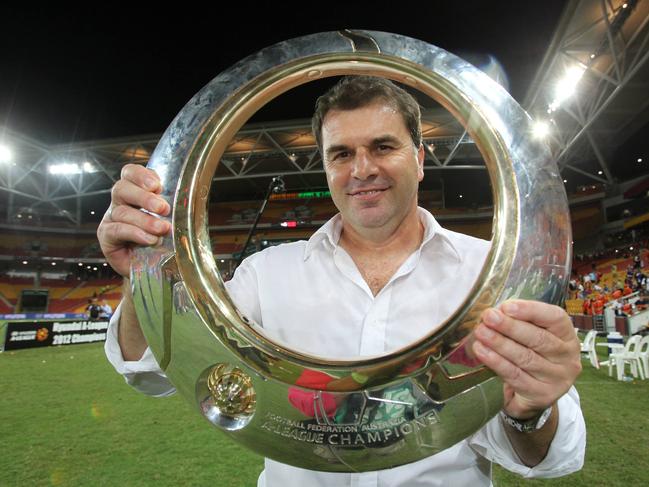
His circle was very small back then. Since A-League boss Archie Fraser threw him a lifeline at Brisbane Roar in 2009, Postecoglou has not looked back. And the bandwagon has only got bigger.
He’s shown remarkable poise in the process, with his “always win in my second season” comments dominating post-match analysis in Bilbao – even Spurs players, including Maddison, were seen holding a flag aloft with the words emblazoned, killing off any suggestions that he’d lost the players.
The first part of his tenure – when he led the league and won global admiration – showed that he can also deliver a swashbuckling style that Spurs were known for in their halcyon days, and fans crave.
If fiscally prudent Spurs invest – they have the lowest wage-to-turnover ratio in the Premier League, at 42 per cent, compared to Aston Villa’s 96 per cent and Man United’s 55 per cent – then Postecoglou can potentially deliver both.
Champions League qualification will add $209m (£100m) to the bottom line, which should be sufficient to add several world-class players, enabling them to challenge the top four.
If Spurs persist with Postecoglou — and if he opts to stay — the Aussie has two more frontiers to conquer.
A maiden Champions League crown and a 64-year top-flight title drought.
Surely an Aussie couldn’t deliver both — could he?

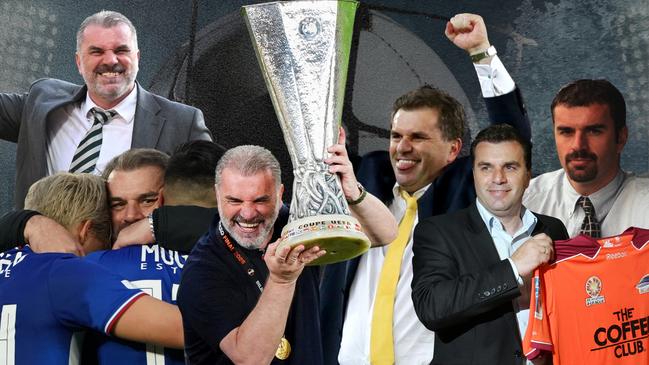
Add your comment to this story
To join the conversation, please log in. Don't have an account? Register
Join the conversation, you are commenting as Logout
Best ever? How Ange ranks in pantheon of great Aussie coaches
Australia has had some magnificent sports coaches but there’s one thing that makes Ange Postecoglou different from the rest. Where does he rank among the greatest across all sports? Vote inside.
Wunderkinds, future Socceroos: A-League’s best young talent rated
From a 17-year-old wunderkind to talents already in the Socceroos reckoning, these are the 25 best young talents under 25 in the A-League. HAVE YOUR SAY.